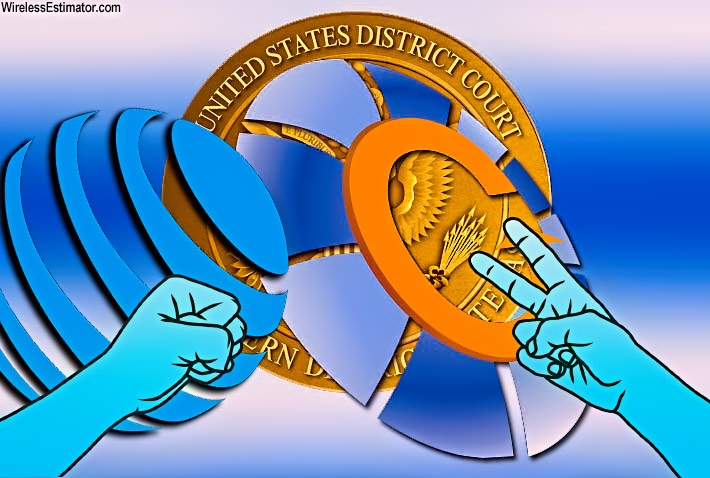
IF ROCK BEATS SCISSORS, AN AT&T JUDGMENT MIGHT NOT BE WORTH THE PAPER IT IS WRITTEN ON. It appears that the United States District Court of the Eastern District of Texas will award AT&T $1.44 million after ruling upon its lawsuit against Goodman Networks for not paying its outstanding network bill. However, Goodman is still in a Chapter 7 bankruptcy, and AT&T will have to move to the back of the line, well behind secured creditors.
Contractors and suppliers that have had to sue clients, such as Nexius, for past due payments know that it’s an expensive legal and often fruitless process that can take a year or two since attorneys aren’t adverse to the defendant’s counsel delaying the process as long as possible as they pile up billable hours.
So when AT&T’s attorneys filed a lawsuit against Texas-based Goodman Networks on October 25 to collect $1,224,888 for multiple contracts that they allege Goodman did not pay for, it was unexpected that the U.S. District Court for the Eastern District of Texas would entertain providing a default judgment in the next week or so.
With civil cases typically moving at glacial speeds, this one was quick as lightning for one reason. Goodman never provided a court-required answer to the complaint due on November 22, three weeks after receipt of the complaint.
Nor have they filed for an extension, and AT&T requested that the court provide them with a default judgment they will likely get.
Although the complaint for breach of contract and unjust enrichment identifies a master agreement and a restated pricing schedule dated July 29, 2020, those documents were not attached to the complaint. Therefore, it is unknown if they were only for network services.
The court is being requested to set the judgment at $1,443,049, which includes $187,400 in interest charges and $20,752 in attorney’s fees and costs.
Goodman was one of AT&T’s primary and favored turfing contractors, but the company started imploding in 2015.
Although there had been rumors that Goodman’s revenues were seriously declining, it was apparent on March 10, 2015, when the company terminated an additional 340 employees.
A year later, Moody’s issued a devastating report, downgrading the company with a negative outlook, raising their concern about whether Goodman could meet its obligations over the next 12-18 months.
Revenue for 2015, $725 million, had declined 40% year-over-year due primarily to decreased volume of projects completed with AT&T.
Moody’s said that Goodman could take advantage of opportunities in 2016 to win additional work from AT&T (including DirecTV) and new customers Sprint and CenturyLink, which could diversify Goodman’s revenues and help stabilize the business.
In June 2015, Goodman announced that they had sold certain wireless and wireline assets to Dycom Industries for $107.5 million.
However, Goodman’s contract backlog fell far short of what Dycom expected, and Wall Street hammered the company’s stock.
In late 2016, the Goodman’s CEO, EVP, General Counsel, EVP of Sales, EVP of Professional Services, EVP of Business Operations, EVP of Human Resources, and the EVP and Chief of staff tendered their resignation.
In March 2017, Goodman Networks Incorporated filed for Chapter 11 bankruptcy, listing a who’s who of contractor and supplier creditors.
Goodman lost a home service provider contract with AT&T’s DirecTV LLC in January 2021, which generated the bulk of the wireless infrastructure company’s earnings. According to a company disclosure provided to investors, DirecTV was Goodman’s largest customer, having generated roughly $100 million in revenue in 2020, or 80% of Goodman’s revenue.
DirectTV terminated the contract over concerns about Goodman’s liquidity and debt.
On April 15, 2021, Goodman didn’t make the interest payment on its 8% first-lien notes maturing in 2022, according to data compiled by Bloomberg.
In September of 2022, secured creditors forced Goodman Networks, dba Goodman Solutions, into Chapter 7. On Friday, the bankruptcy court scheduled a hearing on April 19 to consider the trustee’s motion to approve a settlement with secured lenders.


















